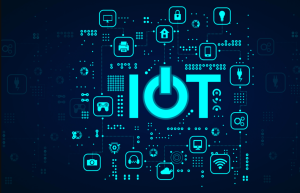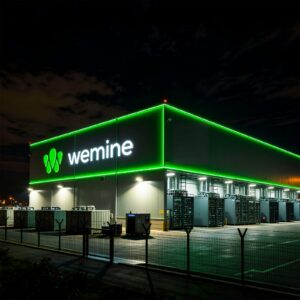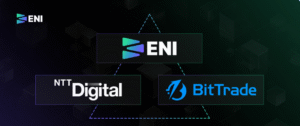
Decentralized Identity in Blockchain
The world is experiencing a rapid growth in the number of interconnected devices, thanks to the Internet of Things (IoT). As IoT devices generate enormous amounts of data, the need for efficient and secure data storage becomes crucial. Traditional centralized data storage systems are often unable to cope with the scale and demands of IoT. However, the emergence of blockchain technology offers a promising solution to these challenges by enabling decentralized data storage for IoT. In this article, we will explore the concept of decentralized data storage, understand its significance in the IoT landscape, delve into the features of blockchain technology, and discover how blockchain can be leveraged for decentralized data storage in IoT applications.
Understanding Decentralized Data Storage
What is Decentralized Data Storage?
Decentralized data storage refers to a distributed system where data is stored across multiple nodes or devices rather than relying on a central server. In this model, each node maintains a copy of the data, ensuring redundancy and fault tolerance. This approach eliminates the single point of failure associated with centralized systems and enhances data availability and resilience.
Benefits of Decentralization in Data Storage
Decentralized data storage offers several advantages over centralized alternatives. Firstly, it enhances data security since there is no central repository vulnerable to attacks or unauthorized access. Secondly, it improves data availability as multiple copies of the data exist across the network, reducing the risk of data loss. Lastly, it promotes data sovereignty, allowing users to retain control over their data without relying on third-party intermediaries.
The Role of IoT in Data Storage

1. Overview of IoT
The Internet of Things refers to a network of interconnected devices, sensors, and actuators that collect and exchange data. IoT technology enables devices to communicate with each other and with cloud platforms, generating vast amounts of data in various domains such as healthcare, manufacturing, transportation, and more.
2. Data Storage Challenges in IoT
IoT devices produce an enormous volume of data, creating challenges in terms of storage, processing, and analysis. Centralized data storage architectures struggle to handle the velocity, volume, and variety of data generated by IoT devices. Additionally, latency issues arise when sending data to a centralized server, impacting real-time decision-making and responsiveness.
3. Importance of Secure and Efficient Data Storage for IoT
Efficient and secure data storage is critical for IoT applications. Real-time analysis, data integrity, and reliability are essential for effective decision-making, predictive maintenance, and other IoT use cases. By leveraging decentralized data storage, IoT systems can overcome the limitations of traditional centralized architectures and ensure data availability, security, and scalability.
Blockchain Technology and Its Features
1. What is Blockchain?
Blockchain is a distributed ledger technology that enables secure and transparent record-keeping. It consists of a chain of blocks, where each block contains a set of transactions. These transactions are validated and added to the blockchain through a consensus mechanism, ensuring data integrity and immutability.
2. Key Features of Blockchain Technology
Blockchain technology possesses several key features that make it suitable for decentralized data storage in IoT. Firstly, it offers decentralization by design, as the data is stored across multiple nodes within the network. Secondly, it ensures immutability, meaning once a transaction is added to the blockchain, it cannot be altered or tampered with. Additionally, blockchain provides transparency, allowing participants to view the entire transaction history.
Leveraging Blockchain for Decentralized Data Storage in IoT
1. How Blockchain Enables Decentralized Data Storage
Blockchain technology provides a framework for decentralized data storage by distributing data across a network of nodes. Each node maintains a copy of the blockchain, ensuring redundancy and fault tolerance. This architecture enhances data availability and eliminates the single point of failure associated with centralized storage systems.
2. Benefits of Blockchain in IoT Data Storage
Integrating blockchain with IoT data storage offers numerous benefits. Firstly, it enhances data security by employing cryptographic techniques and decentralized consensus algorithms. Secondly, it ensures data integrity and auditability, as every transaction recorded on the blockchain is immutable and transparent. Additionally, blockchain technology enables peer-to-peer data sharing and eliminates the need for intermediaries, reducing costs and improving efficiency.
Use Cases of Decentralized Data Storage for IoT
1. Smart Cities and Infrastructure
In smart city deployments, various IoT devices such as sensors, cameras, and traffic management systems generate massive amounts of data. By leveraging decentralized data storage with blockchain, cities can ensure data integrity, enhance security, and enable efficient data sharing across different departments and stakeholders.
2. Healthcare and Medical Devices
Decentralized data storage combined with IoT can revolutionize healthcare by securely storing and sharing patient data, ensuring interoperability among different healthcare providers, and enabling personalized treatments. Blockchain-based solutions can enhance data privacy, prevent unauthorized access, and streamline data exchange between hospitals, clinics, and research institutions.
3. Supply Chain and Logistics
The supply chain industry can greatly benefit from decentralized data storage in IoT. By integrating blockchain technology, stakeholders can track and verify the provenance, authenticity, and condition of goods throughout the supply chain. This enhances transparency, reduces fraud, and streamlines logistics operations.
Challenges and Considerations
1. Scalability and Performance
As the volume of IoT data continues to grow exponentially, scalability becomes a major concern. Blockchain networks need to address scalability issues to handle the increasing data throughput and transaction rates efficiently. Solutions like sharding, sidechains, and layer 2 protocols are being explored to overcome these challenges.
2. Security and Privacy
While blockchain technology provides enhanced security through cryptographic techniques, ensuring the privacy of sensitive IoT data remains crucial. Solutions such as zero-knowledge proofs, selective disclosure, and off-chain computation are being developed to address privacy concerns without compromising data integrity.
3. Interoperability
Interoperability is essential for the success of IoT and blockchain integration. Standardization efforts, development of open protocols, and the adoption of common data formats are necessary to enable seamless data exchange and collaboration between different IoT platforms and blockchain networks.
Future Trends and Innovations
1. Integration of AI and Machine Learning
The combination of AI, machine learning, and decentralized data storage can unlock new possibilities for IoT applications. AI algorithms can leverage the rich and diverse data stored in decentralized networks to derive valuable insights, enable predictive analytics, and optimize decision-making processes.
2. Edge Computing and Fog Computing
Edge computing and fog computing are emerging paradigms that bring computing capabilities closer to IoT devices. By processing and analyzing data at the network edge, these technologies reduce latency, improve real-time responsiveness, and alleviate the burden on centralized cloud infrastructure. Combining edge and fog computing with decentralized data storage can enhance the efficiency and performance of IoT applications.
Data Analytics and Machine Learning in Decentralized IoT
1. Leveraging Decentralized Data for Analytics
Decentralized data storage architectures provide rich and diverse datasets distributed across the network. This wealth of data can be harnessed for advanced analytics, enabling organizations to gain valuable insights and make data-driven decisions. By utilizing techniques such as federated learning, where machine learning models are trained on decentralized data without the need for data centralization, privacy and security concerns can be addressed while still extracting valuable knowledge from the data.
2. Collaborative Machine Learning in IoT
Collaborative machine learning involves training models using data from multiple sources. In decentralized IoT environments, collaborative machine learning can be achieved by leveraging blockchain technology to securely aggregate and share data while preserving privacy. This approach allows IoT devices to collectively learn and improve their models without directly sharing sensitive data, enabling better predictions and smarter decision-making in distributed IoT systems.
Adoption Challenges and Future Trends
1. Interoperability Standards
The lack of standardized protocols and interoperability frameworks poses a significant challenge to the widespread adoption of decentralized data storage in IoT. The development of open standards and protocols that enable seamless communication and data exchange between different IoT devices, platforms, and blockchain networks is essential. Collaborative efforts by industry consortia, standardization organizations, and technology providers are underway to address this challenge and establish interoperability standards for decentralized IoT systems.
2. Hybrid Architectures
To address the scalability and performance challenges of decentralized data storage, hybrid architectures can be considered. These architectures combine the benefits of both centralized and decentralized approaches, allowing for a flexible and scalable storage infrastructure. By selectively storing data on the blockchain or utilizing off-chain storage solutions, hybrid architectures provide a balance between scalability, efficiency, and data accessibility.
3. Edge-to-Blockchain Integration
Edge computing plays a crucial role in IoT systems by enabling data processing and analysis at the network edge, closer to the data source. Integrating edge computing with blockchain technology can further enhance the performance and efficiency of decentralized data storage in IoT. By combining edge devices’ computational capabilities with the security and transparency of the blockchain, real-time data processing and storage can be achieved while reducing latency and bandwidth requirements.
Conclusion
Decentralized data storage powered by blockchain technology offers a promising solution to the data storage challenges faced by IoT applications. It provides enhanced security, data integrity, and availability while promoting decentralization and data sovereignty. Through real-world use cases in smart cities, healthcare, and supply chain, decentralized data storage has demonstrated its potential to transform various industries. However, challenges such as scalability, security, and interoperability need to be addressed to realize the full potential of decentralized data storage in IoT.
I have worked in the cryptocurrency industry for over 5 years and have written numerous articles on the subject. I am well-versed in all aspects of cryptocurrencies and blockchain technology, and am an expert in the field.









